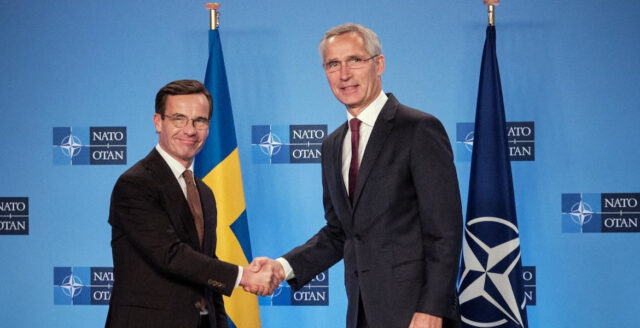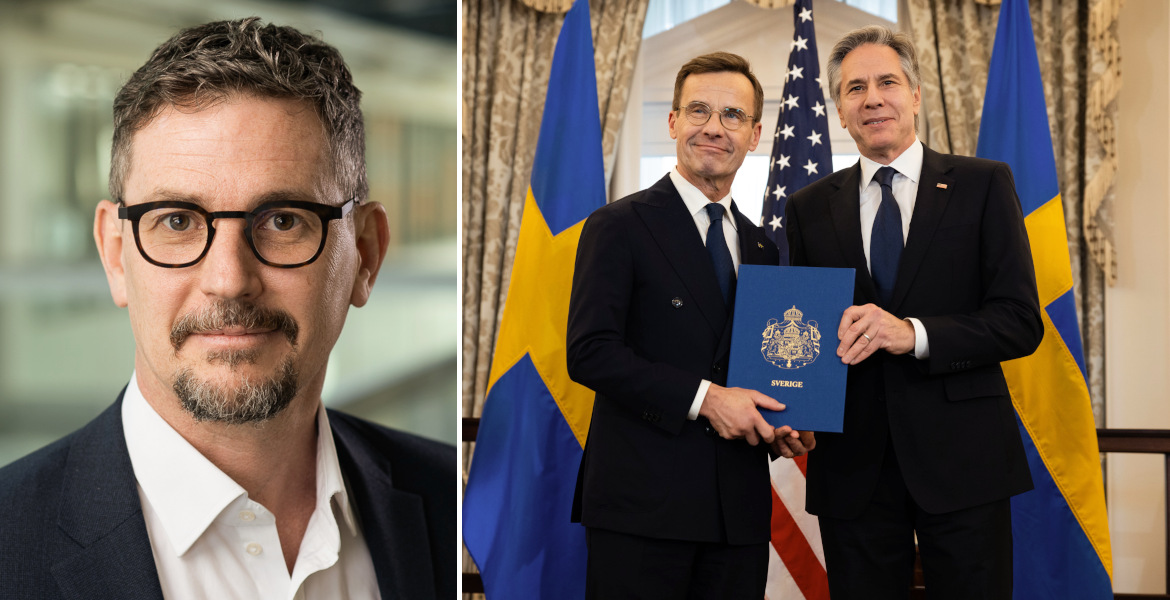Linus Hagström, professor of political science at the Swedish National Defense University, has long researched foreign and security policy and was one of the few public voices to argue that the debate leading up to Sweden’s NATO application was one-sided, superficial and at times undemocratic.
Now he notes that the NATO Sweden joined less than a year ago no longer exists, and that the Swedish government must explore the possibility of terminating the much-criticized DCA, which gives the US military access to Swedish territory and Swedish army bases.
“The Trump administration’s handling of Ukraine and Gaza, as well as the threats against allies Denmark and Canada, are also evidence of an increasingly aggressive and blunt American imperialism. It is now directed not only against traditional enemies but also against allies and friends”, he writes in the tabloid Aftonbladet.
Hagström argues that the Trump administration is not isolationist, as analysts have often claimed. Instead, it is driven by great power ambitions and directs “its aggression against the forces that are imagined to be obstructing the United States in the hope of thereby realizing the fulfillment of great power – a desire that is constantly slipping and can never be fully satisfied”.
He stresses that Sweden chose to join NATO when the organization “appeared most vulnerable” and that those who dared to warn against joining were ridiculed or suspected.
“Despite all the talk of realism, not least from Prime Minister Ulf Kristersson, the Swedish NATO decision was characterized by idealism and naivety. The organization that Sweden joined on 7 March 2024 no longer exists in practice”, he writes.
No more American weapons
The professor argues that US foreign policy is becoming increasingly paranoid and manipulative – drawing parallels with Russia. He believes it is imperative for the government to set clear boundaries with the great power in the West to ensure we are not controlled and exploited.
“After 80 years as a pseudo-allied and later an ally, it will be more difficult to cut the emotional dependence on the US, but Sweden should urgently investigate the possibility of terminating the DCA and resolutely avoid buying more US weapon systems”, he states.
How to act instead in terms of defense policy and which partners Sweden should seek is a more complex issue according to Hagström, who points out that rearmament can often be interpreted as a threat that risks leading to escalation and a “negative spiral of measures and countermeasures”.

“The psychopathology of great power politics”
He points out that even Sweden’s generous support for Ukraine has a limit – “a point where our own security interest is harmed more than it is gained”.
“That limit must be carefully guarded, based on the realization that all security policies are potentially insecure and even dangerous”, he warns.
Hagström hopes that Sweden will be able to “build an alliance on a more genuinely democratic basis” than NATO and “establish an alternative force field in international politics”. However, it is not clear which other countries will be part of this alliance and how it will be structured.
“The challenge is to try to change the psychopathology of great power politics in the long term – and at the same time, here and now, as actively as possible, counteract its most acute expressions without risking its own demise”, he concludes.








